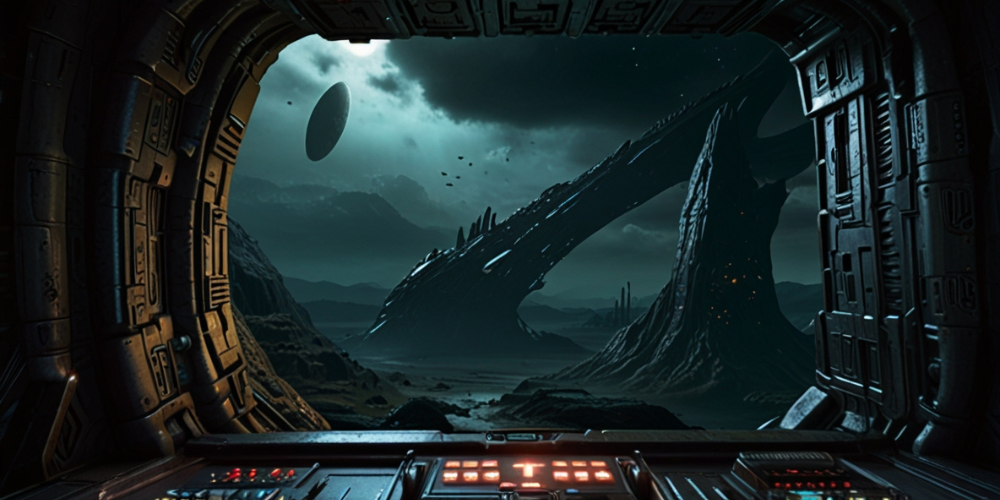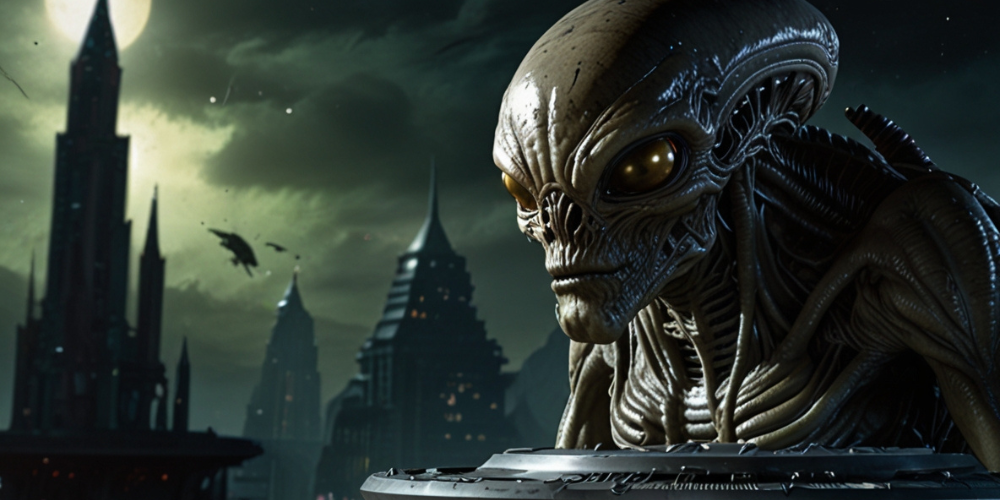
In the realm of sci-fi horror, few films have maintained their terrifying grip as effectively as Ridley Scott's 1979 classic, *Alien*. With its immersive atmosphere, relatable characters, and an ever-looming threat embodied by the xenomorph, *Alien* has set a benchmark for fear that many sequels and adaptations strive to meet—but few accomplish. The latest entry, *Alien: Romulus*, attempts to revisit the chilling essence of the original. Yet, while it manages to evoke moments of suspense, it ultimately falls short when juxtaposed with a game that does capture that dread masterfully: *Alien: Isolation*. Let us delve deeper into this mythos, comparing these two distinct interpretations of the xenomorph experience.
The Enduring Legacy of *Alien*
What sets Scott's *Alien* apart is not just its horror elements but also its relatable storytelling. The crew of the Nostromo isn't made up of heroic archetypes; they are blue-collar workers, much like the audience. This grounding, in reality, amplifies the fear as we can see ourselves in their shoes—ordinary people facing extraordinary terror. The film creates a universe that feels lived-in and gritty, combining a realistic view of space travel with a palpable sense of dread as the xenomorph stalks its prey. This is the core essence of *Alien*, an intricate balance of tension and fear that has inspired countless filmmakers and game designers since its release.
*Alien: Romulus*—An Attempt at Revival

Fast forward to *Alien: Romulus*, which aims to embody the horror of its predecessors. While it features moments that elicit fear, such as the unrelenting approach of the xenomorph and the chaos of facehuggers in action, the film often veers into predictable territory. By relying heavily on explosive sequences and visual spectacle, it tends to transform a once-wretched creature into mere cannon fodder, contradicting the slow-burn horror that defined the original. In this, *Romulus* presents a sequel that, although entertaining, doesn't encapsulate the raw emotional impact present in Scott's tale.
*Isolation*—Where Fear Lives
Conversely, *Alien: Isolation* stands as an exceptional tribute to the original film. Developed as a video game, it utilizes the core concepts of *Alien* and magnifies them into an experience designed to evoke unrelenting terror. Set aboard the Sevastopol space station, the player embodies Amanda Ripley, the daughter of Ellen Ripley, as she encounters ghastly challenges in her own right. The game focuses on stealth and evasion rather than direct confrontation, ensuring that players experience true horror every moment they navigate through darkened halls, with the xenomorph stalking them.
3.1 The Threat Within

In *Isolation*, the creature is not just another enemy to be vanquished; it is an intelligent predator that employs cunning tactics to seek out its targets. The player's primary strategy involves avoiding the alien rather than fighting it—a stark contrast to the confrontational approaches utilized in *Romulus*. One is often forced into hiding, praying that the creature will pass without detecting them, lending a heart-pounding urgency to each encounter.
The Fear of the Unknown
The true genius of *Alien: Isolation* lies in its ability to recreate those famous moments from the original film. The game allows players to experience the tension of those iconic scenes—where Ripley carefully manipulates her environment to escape danger—on a grander scale. Players can hold their breath as they lurk in darkened corners, relying on intuition and strategy to survive. In contrast, *Romulus* does not maintain this level of suspense, allowing its xenomorphs to behave more like brute forces than the intelligent hunters they are meant to be.
Understanding the Monsters
In its attempt to shine a spotlight on various creatures, *Romulus* inadvertently diminishes their horror. While it does innovate the appearance of face-huggers, the portrayal of xenomorphs misses the mark. The film depicts them as loud, brash, and easily dispatched by gunfire—elements that drain the fear from their existence. This disparity in execution highlights the vital aspect that *Isolation* gets right: the alien should remain partly elusive, lurking in the shadows and striking fear with each moment of silence before it pounces.
5.1 Contrasting Experiences

This distinction emphasizes the struggle within many sequels and adaptations within the franchise—they often focus too much on showcasing monsters and too little on the unease they should evoke. The unpredictability of these creatures, whether in a movie or game, is what fuels the fear. An alien that swings wildly and straightforwardly loses the depth of terror present in the more calculated menace we saw in the original film.
An Unfinished Journey
Each entry within the *Alien* franchise contributes to a grand narrative, weaving together survival, isolation, and the monstrous themes. *Alien: Romulus* may not have captured the foundational essence as eloquently as hoped, yet it remains an addition to the broader dialogue that has consumed fans for decades. While I may hold my reservations about the latest film, the wild ride through the chaos of the *Aliens* universe still carries with it appeal—each outing, whether successful or flawed, engages us further in the saga energized by fear. Yet, the true horror still lies waiting within the confines of Sevastopol, showcased perfectly in *Alien: Isolation*. It continues to thrill players and accentuate what makes the xenomorph so fearsome—a lurking terror managing to ensnare us even amid the darkness.
Conclusion
The journey through the *Alien* universe—both onscreen and through interactive media—reminds us of the essential fear created by the unknown. Ridley Scott’s original film holds a special place as the pinnacle of horror, an experience replicated not by immense action or spectacle but by a deft understanding of the dark unknown. As we continue to explore this franchise, our yearning for that raw, terrifying experience persists, revealing that perhaps the true legacy of *Alien* is an undying desire for survival amidst horror that no sequel has yet captured completely.